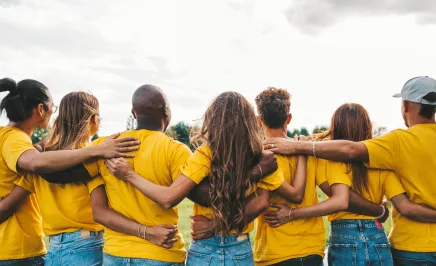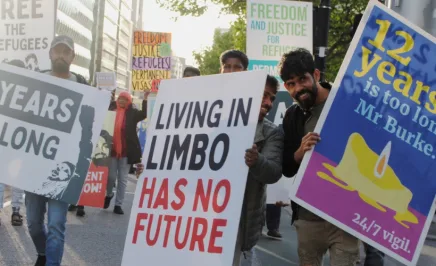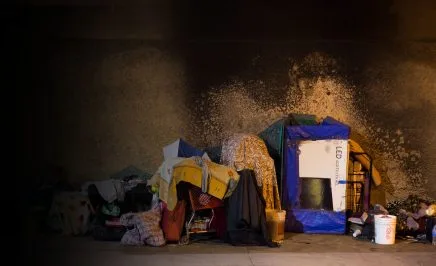Reacting to the violent dispersal of what started as peaceful protest in Georgia’s capital Tbilisi, Denis Krivosheev, Amnesty International’s Eastern Europe and Central Asia Deputy Director, said:
“The Georgian authorities have launched yet another punitive operation against peaceful protesters. The use of water cannons, tear gas, pepper spray, and rubber bullets aimed at protesters’ faces at close range, as well as the chasing and incessant beating of peaceful demonstrators, shows the government’s determination to suppress dissent through the unlawful use of force by the police. It also exposes their complete disregard for the rights to freedom of expression and peaceful assembly.
“Police violence, including the ill-treatment of detainees, must immediately stop. All allegations of police brutality must be promptly and effectively investigated, including those relating to more than 20 instances of violent assault against journalists. People detained solely for their peaceful participation in the protests must be immediately released, and those reasonably suspected of internationally recognized crimes must receive fair trials.
“People detained solely for their peaceful participation in the protests must be immediately released, and those reasonably suspected of internationally recognized crimes must receive fair trials.”
Denis Krivosheev, Amnesty International’s Eastern Europe and Central Asia Deputy Director
“We also call on the international community to closely monitor the unfolding administrative and criminal proceedings against protesters to help ensure that judicial proceedings are not exploited to unduly punish those exercising their right to protest.”
Background
Protests erupted in Tbilisi on 28 November 2024, after Prime Minister Irakli Kobakhidze announced that Georgia would suspend negotiations on EU membership until 2028. Protesters who were later joined by President Salome Zurabishvili blocked streets near the Georgian parliament with barricades, demanding a reversal of the decision.
According to the Ministry of Internal Affairs, 43 protesters were detained, accused of disobedience and minor hooliganism, while investigations under more serious charges are ongoing. The Ombudsperson of Georgia criticized the unlawful use of force and ill-treatment of peaceful protesters and journalists by police for “revenge and intimidation” encouraged by impunity.
More than 30 journalists were reported assaulted by law enforcement officials, including Formula TV’s Guram Rogava, who was struck on the head, and Publika’s Lekso Keshelashvili, whose nose was broken.
Several women politicians and journalists reported being subjected to gendered and sexual insults and degrading treatment, including opposition politicians Elene Khoshratia and Nana Malashkhia, who sustained serious injuries, and Radio Free Europe journalist Salome Chanduneli who suffered physical assault and insults.
The protests are planned to resume at 7 p.m. local time on Friday.





